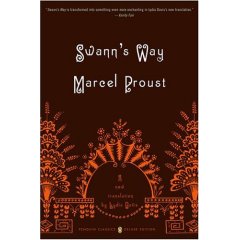
I've been on a Wonder Woman reading spree - all thanks to the graphic novel section at the library@orchard. The selection is half-decent, and I've managed to pick up a few Batman and Wonder Woman trade paperback.
Last night I was halfway through
Wonder Woman: Paradise Lost. After a bloody civil war between the rivaling factions of Amazons, Queen Hippolyta (mother of Diana aka Wonder Woman) abolished the matriarchy of Themyscira. This effectively removes Diana from her position as Princess of the Amazons. This marks a change in status for Wonder Woman, and also sets up a potential rift in mother-daughter relationship between Hippolyta and Diana in the future.
For me, Wonder Woman is forever represented by Lynda Carter's warm and elegant portrait. I have a poster of Wonder Woman in my room, by the artist Alex Ross (the portrait looks uncannily like a water-colour rendition of Lynda Carter.) But what I noticed in the comic presentation (from what I've read so far) is that the character suffered when her writers who don't know what to do with her. Wonder Woman is one of the Trinity of the Justice League America (JLA) - but it's sad when she is often made to feel more like a supporting character.
What I found annoying about
Paradise Lost was when Wonder Woman ask a handsome Trevor Barnes out for a date - only to have him turn her down. The device is of course to humanise Wonder Woman: Look - even Wonder Woman faces romantic rejection. She's just like us.
Awwww! Poor Wonder Woman My response:
*roll eyes* Please! I find it obvious and unconvincing. The relationship, or rather Wonder Woman's crush on Trevor Barnes suffers from the lack of build-up - like Wonder Woman herself, a failure of sufficient development. I think the character deserves better. Also, how typical (here I may be accused of being
feminist) to go for the "girls need to be boy-crazy to be normal" shortcut.
A major missed opportunity for character exploration is Wonder Woman's semi-exile from Themyscira. She relinquished her title as Princess of Themyscira for the sake of her motherland, and yet at the end was told her presence on the island was disruptive to the new order. This was only briefly mentioned, and sneaked in during a bitchfest with Lois Lane (over, of all things - Superman). I would think a better writer would explore this pain of exile and fall-from-grace in greater depth.
It is easy to attribute it to the poor comprehension of male writers of strong female superheroes. But Joss Whedon has done splendidly fleshing out Buffy the Vampire Slayer - so men can write kickass female superheroes without sacrificing their femininity. I'm gratified that Joss Whedon will be doing the script for the upcoming Wonder Woman movie.
The best writer for the Wonder Woman comic so far seems to be Greg Rucka, who brings out the mythic element in her. This is Wonder Woman afterall - she is gifted with the speed, strength, beauty and wisdom of the Greek gods. The challenge to Wonder Woman writers is how they can balance the ultimate paradox - the god-like heroine who also embodies the best of humanity? She is the bearer of Truth. She
cannot lie - that is the burden, symbolised by the Lasso of Truth that she wields. How do you retain the iconic status of this character without reducing them to a two-dimensional caricature?



